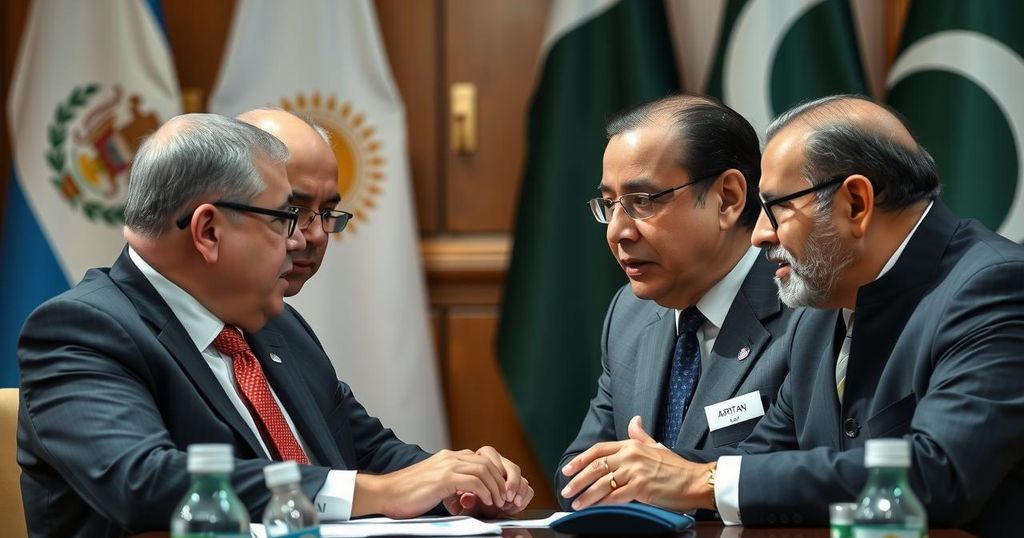Javier Milei’s rise as Argentina’s president has led to significant economic reforms, notably reducing inflation from 211% to single digits. His policies favor cutting government size and regulations, drawing attention from those in Pakistan seeking similar leadership. However, his political biases and questionable interpretations of economic history warrant caution. Pakistan needs a leader with Milei’s economic insight devoid of such biases to navigate its own economic challenges.
In many ways, Argentina mirrors Pakistan; both nations once enjoyed robust economies but have since faced persistent economic challenges, resulting in recurrent reliance on the International Monetary Fund (IMF). Recently, Javier Milei emerged as a transformative political figure in Argentina, leading to significant economic improvements, particularly in inflation control, which plummeted from an alarming 211 percent to single digits within a year. His aggressive approach to reducing government size and lifting excessive regulations has drawn international attention and admiration, prompting some Pakistanis to seek a similar leadership model to alleviate their country’s ongoing economic difficulties.
Milei’s insights into economic management, particularly eliminating bureaucratic inefficiencies and reducing fiscal deficits, resonate strongly with those advocating for change in Pakistan. He emphasizes the benefits of lower inflation and the dangers of price controls, which merely create an illusion of stability. However, while his economic strategies have garnered respect, his controversial views on political matters, particularly his favorable stance towards the United States and Israel, raise concerns. Such views clash with the principles of freedom he professes to support and reflect a troubling bias.
Moreover, Milei’s understanding of economic history has faced scrutiny. His discourse on the Industrial Revolution and its advancements has been criticized for overlooking the harsh realities faced by workers during that era. Thus, comparing life quality across historical timelines calls into question his interpretative accuracy. His admiration for figures such as Milton Friedman and Murray Rothbard lacks acknowledgment of the complexities within their economic theories, particularly regarding the Gold Standard and the origins of the Great Depression.
When examining Milei’s potential impact on Pakistan, it is essential to desire the aspects of his economic acumen that advocate for a pragmatic dismantling of damaging regulations. Unlike those in power currently, who may utilize their profound understanding of systems to exploit them for personal gain, a leader like Milei, devoid of dubious biases and oversimplified historical narratives, may provide the necessary perspective to rejuvenate Pakistan’s economy effectively.
In conclusion, while Javier Milei exemplifies qualities desirable for economic reform, his contentious political perspectives and flawed historical interpretations must be critically evaluated. Pakistan could benefit from an economic leader reminiscent of Milei who possesses both the courage to challenge the status quo and a comprehensive understanding of economic complexities, steering clear of biases that hinder genuine progress.
The text discusses the economic transformations under Javier Milei’s presidency in Argentina, highlighting parallels with Pakistan’s economic issues. It explores Milei’s policies aimed at reducing inflation and governmental size, presenting a mix of admiration for his economic strategies and criticism of his political biases. The author draws attention to the historical context of economic theories and their implications, emphasizing the need for a balanced understanding of economic policies to reform Pakistan’s economic challenges.
Ultimately, while Javier Milei’s approach to economic reform has produced tangible benefits for Argentina, it is crucial to discern the dualities in his ideology. Pakistan requires a leader who combines robust economic strategies with an impartial perspective on historical and political contexts, ensuring that economic reforms do not perpetuate biases but instead foster equitable growth.
Original Source: www.dawn.com







